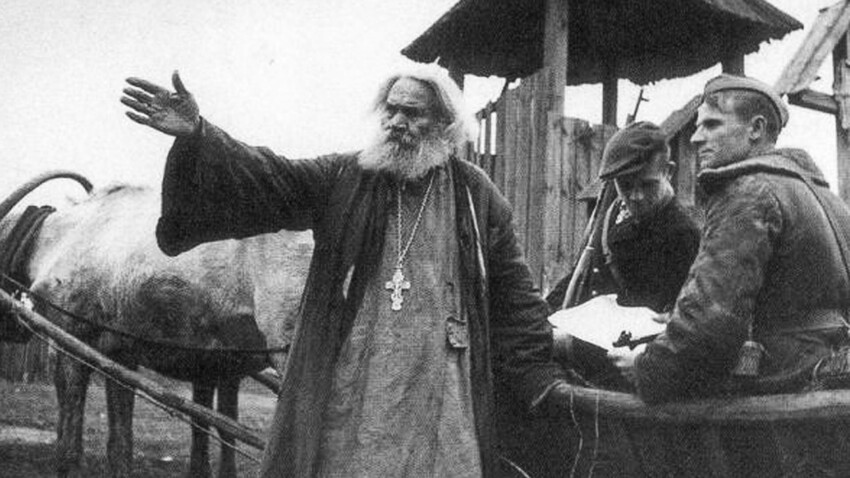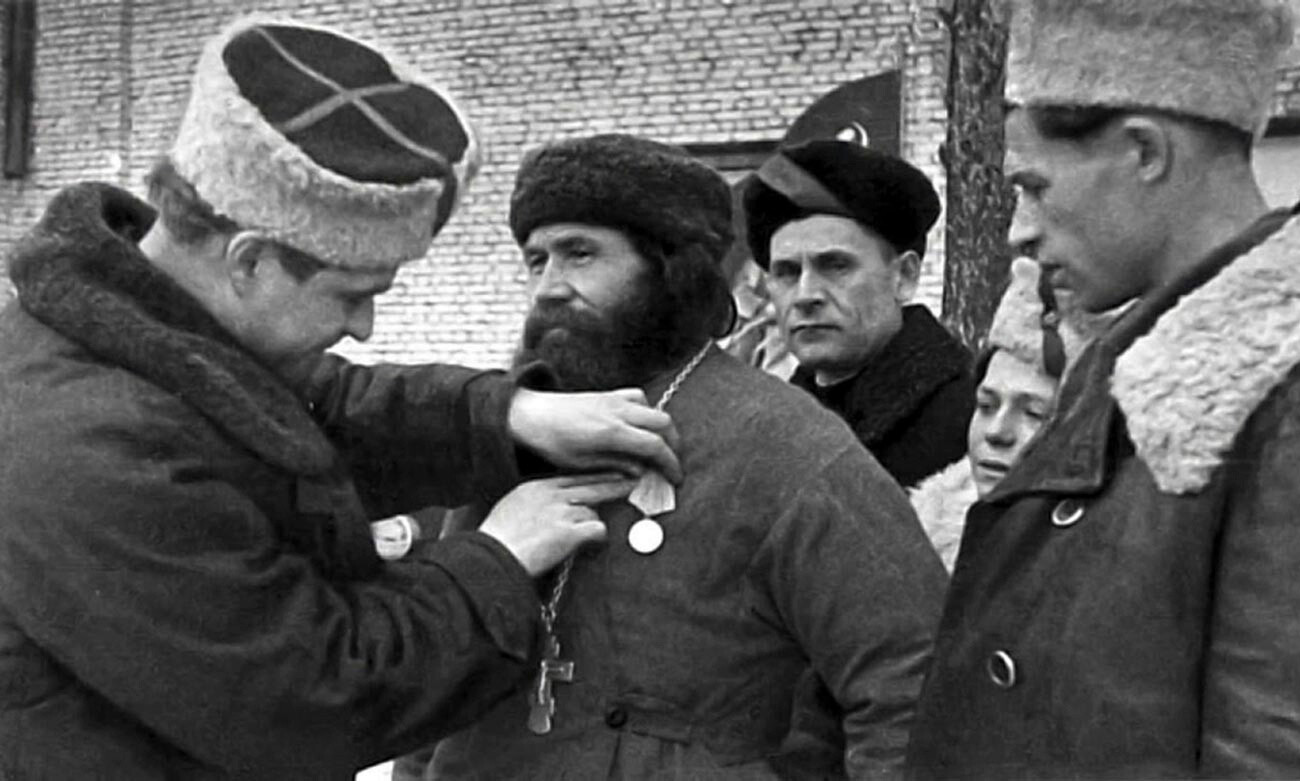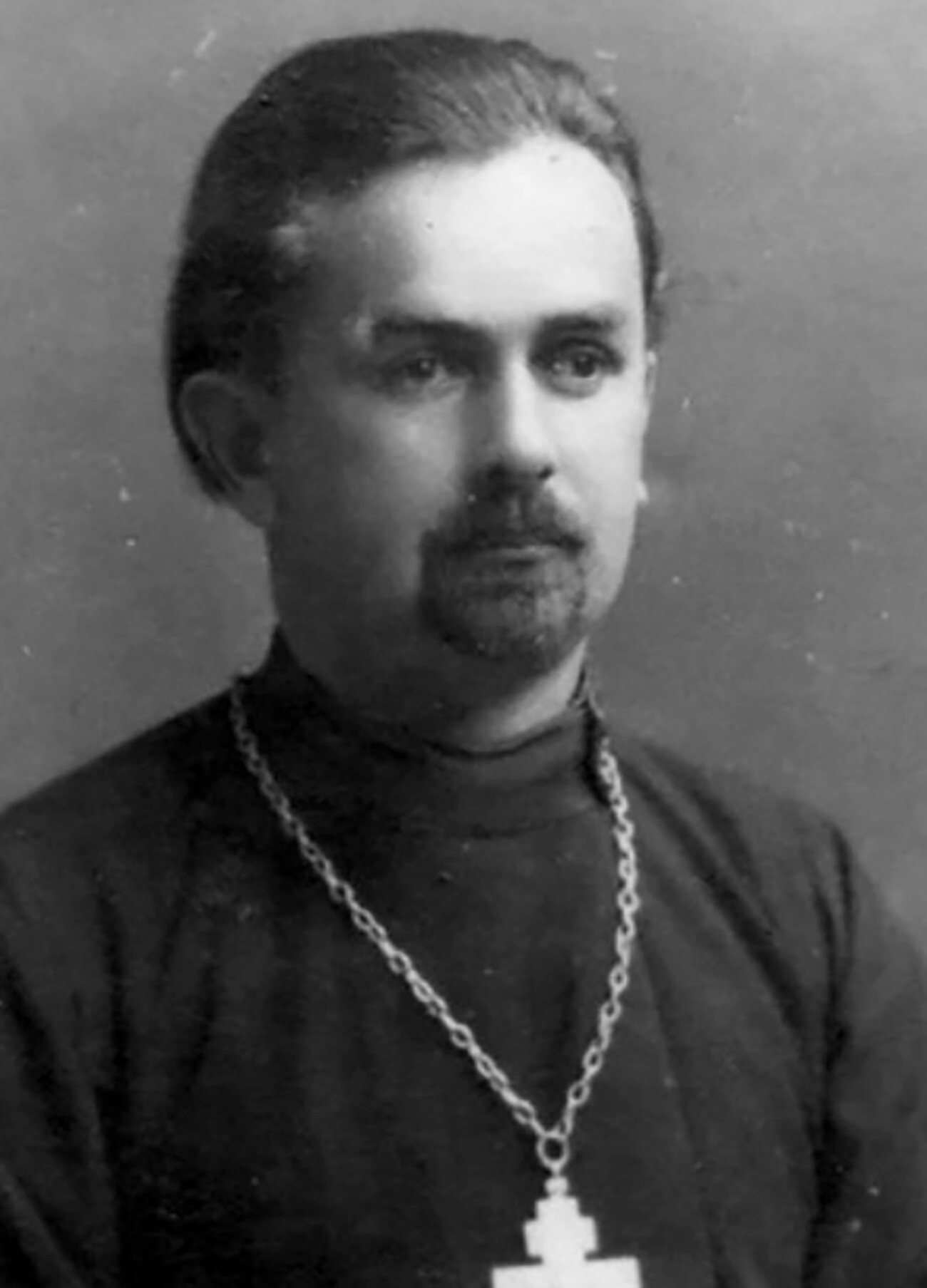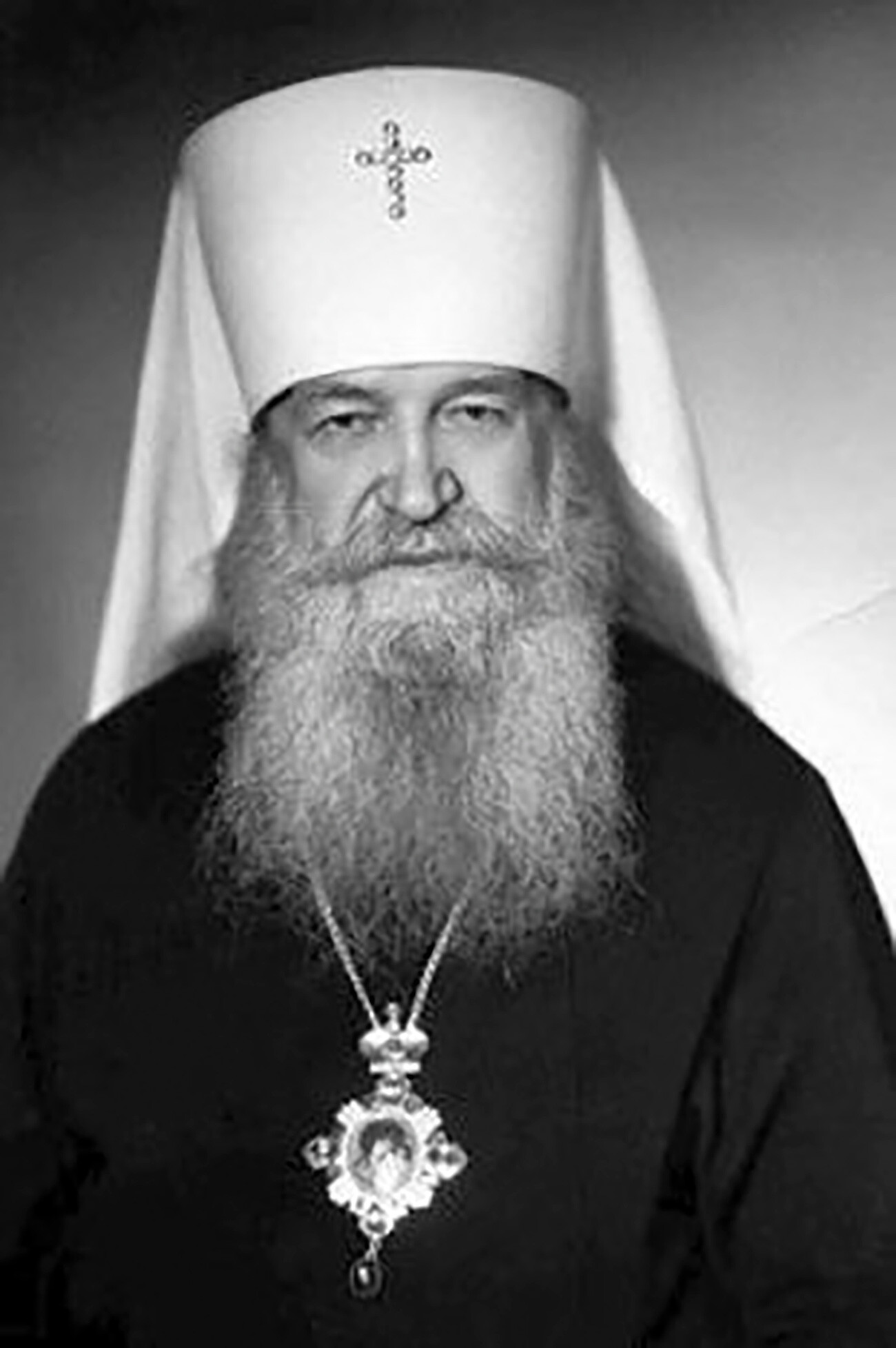
Hundreds of clergymen fought against the Germans in the ranks of the Red Army and as part of partisan detachments. Here are three of those heroes:

When the war began, priest Fyodor Puzanov served as the rector of the Church of the Georgian Mother of God in the village of Khokhlov Gorki, Pskov Region. The Germans had arrived there already in the Summer of 1941.
Puzanov was no timid person. During World War I, he was awarded three St. George Crosses for his bravery in battle.
Despite the fact that he spent three years in a camp during the persecution of the clergy, he did not harbor a grudge against the Soviet government. Father Fyodor, instead, supplied the partisans with information about the number and redeployment of German troops and helped them with food.
During the evacuation of Nazis from Pskov Region, he saved 300 villagers from being taken to Germany. The priest safely led them into the woods to the partisans.
Fyodor Puzanov was awarded the ‘Partisan of the Patriotic War’ medal of the 2nd degree. After the war, he served as the prior of the Assumption Church in the village of Molochkovo, Novgorod Region, until his death in 1965.

From the first days of the war, Nikolai Khiltov, the rector of the Church of St. John the Baptist in the village of Blyachine (Sadovaya), Minsk Region, helped the Red Army soldiers passing through the village with everything he could. And, when the Germans arrived, he began to help the partisans.
The priest's house served as a partisan headquarters and a weapons depot. Father Nikolai also supplied partisan and sabotage groups with clothing and food, acted as a liaison and held funeral services for killed fighters.
“Comrade Khiltov systematically transmitted valuable intelligence information, worked to decompose the police garrison of the city of Kletsk and promptly reported German and police ambushes,” the partisan description said.
Father Nikolai even set up a hospital for wounded partisans in the village church. To scare off the Nazis, he told them that there were typhus patients there.
On April 6, 1944, Hiltov was arrested. Two months later, he was executed in an extremely cruel way: tied to a bed, doused with kerosene and burned alive.

In the early 1930s, Metropolitan Alexy served as a psalm-reader in the Transfiguration Cathedral in the city of Pavlovsk, Voronezh Region. For this, he ended up in a camp for three years.
Then, in October 1941, Konoplev was mobilized into the Red Army. During the war, he rose to the rank of sergeant major, was wounded and shell-shocked, but demonstrated bravery and courage on the battlefield more than once.
For this, his conviction was expunged, he was awarded the ‘For Military Merit’ medal and, when he was discharged to the reserves in 1945, he was even presented with a certificate from Marshal Leonid Govorov, the commander of the Leningrad Military District, with a note of gratitude.
After the war, Alexy graduated from the Moscow Theological Academy and served in various church positions in Rostov-on-Don, Krasnodar, Tula and Kalinin (Tver). The priest died in 1988.
Dear readers,
Our website and social media accounts are under threat of being restricted or banned, due to the current circumstances. So, to keep up with our latest content, simply do the following:
If using any of Russia Beyond's content, partly or in full, always provide an active hyperlink to the original material.
Subscribe
to our newsletter!
Get the week's best stories straight to your inbox